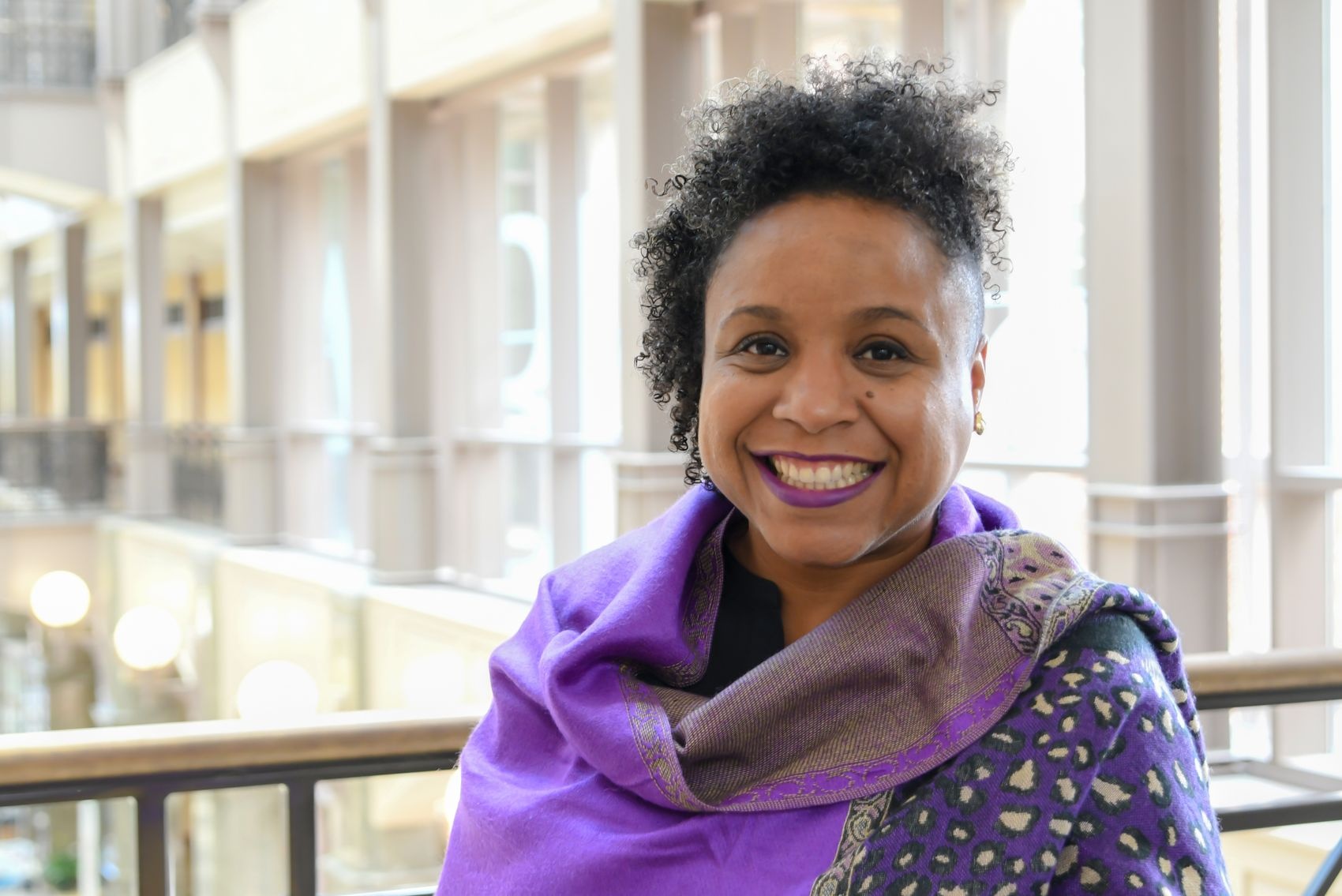
Photo: Krysti Adams/UNCW
Michele Parker is collaborating with faculty members at the University of Ghana on the effective use of AI in higher education. Dr. Parker, a professor in Watson’s Department of Educational Leadership.
The collaboration began in January when Parker traveled to Ghana as a Visiting Academic. During her visit, she had the opportunity to meet with Computer Science faculty at the University of Ghana. It was during these interactions that she discovered the university had already developed institutional guidelines for AI use.
“While I leverage AI tools in my teaching, research, and service, the colleagues in Ghana have taken a structured approach to integrating AI by creating and circulating manuals for faculty and administrators,” she said. “These resources provide clear guidelines on how AI can be effectively utilized in administrative tasks and classroom instruction, ensuring consistency and efficiency across the institution.”
Dr. Parker was particularly impressed by the intentionality behind their approach. She noted that in Ghana, the integration of AI is a systematic effort led by computer scientists who ensure AI implementation is based on technical expertise and best practices. This leadership fosters interdisciplinary collaboration, allowing educators from various disciplines to work alongside AI specialists to tailor AI applications to their specific teaching and administrative needs.
Following her return to the U.S., Parker continued collaborating with her colleagues in Ghana about AI integration and its broader implications for institutional practices. Parker recently shared information from this collaboration at the Society for Information Technology and Teacher Education (SITE) conference in Orlando, Florida, on March 21. The presentation titled "Leveraging AI for Faculty Excellence: Tools and Best Practice," highlighted key lessons from Ghana and discussed how faculty can effectively incorporate AI into their work.
“Although we are still in the early stages of determining how these insights might shape our practices in the Department of Educational Leadership or at Watson, this collaboration has sparked important conversations,” she said. “I see this as an opportunity to integrate AI more effectively into our teaching and administration and explore cross-institutional partnerships that could lead to more sustainable, innovative, and globally informed strategies—AI or otherwise.”
Parker emphasized that her work on AI use has deeply influenced her interactions making her more intentional about how she discusses AI use with students and colleagues.
“I have been exploring more AI tools while also becoming increasingly mindful of the ethical and human aspects of their use,” she said. “Rather than simply adopting AI for efficiency, I am considering its broader implications—how it impacts students, faculty, and institutional decision-making. I want to ensure AI enhances learning and research without diminishing critical thinking, creativity, or ethical responsibility. We can learn a lot by looking at practical applications and engaging in deeper discussions about their long-term impact on higher education.”
Parker’s co-collaborators on the project include Issac Wiafe, Kofi Sarpong Adu-Manu, Mark Atta Mensah, and Prince Boakye-Sekyerehene, all Computer Science faculty members at the University of Ghana. Additionally, Katherine Fuller, a Graduate Assistant for Educational Leadership and a student in UNCW’s Coastal and Ocean Policy, M.S. program, is actively engaged in the project.
Parker is particularly passionate about exploring how AI can be leveraged to address and reduce faculty burnout. “By examining how AI can streamline workloads, enhance efficiency, and provide meaningful support, I hope to explore innovative ways to improve well-being and sustainability in education,” she said.
As AI continues to shape the educational landscape, collaborations like these offer valuable insights into how institutions can implement AI strategically, ensuring that technological advancements serve to enhance rather than replace essential human elements in education.
This article has the following tags: Research & Innovation Watson College of Education


